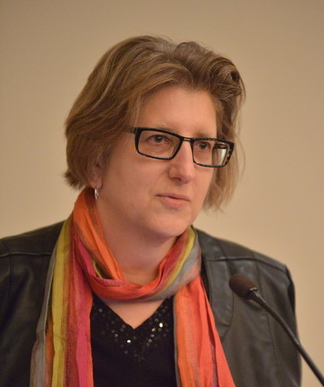
We are grateful to Alexandra Minna Stern for this contribution to our series of posts on the public domain. Stern is Professor and Chair of the Department of American Culture at the University of Michigan. She also holds appointments in the Departments of History, Women’s Studies, and Obstetrics and Gynecology. She directs the Sterilization and Social Justice Lab housed in the Department of American Culture. Her research focuses on the history of eugenics, genetics, society, and justice in the United States and Latin America.
The convergence of open digital access and large-scale text scanning projects makes 2019 Public Domain day a major event for scholars of American history and culture. Thanks to HathiTrust, more than 50,000 materials from 1923 including books, films, and musical scores are available for unrestricted use and distribution.
This is a boon for historians of science and society, particularly those of us interested in the history of that misguided science of genetic selection—eugenics—that played a role in justifying racial immigration quotas and the sterilization of the “unfit” in the early twentieth-century. The eugenics era is disturbing and fascinating on its own historical terms and deserves further scrutiny. It also can serve as an ideological antecedent for key facets of the rhetoric of white nationalism that has surfaced in recent years and was on display at the Unite the Right rally in Charlottesville, Virginia in August 2017.
Take, for example, this quote: “immigrants have been pouring in upon us more rapidly than they can be assimilated” and “the greatest permanent danger . . . lies in the likelihood of receiving stocks of inferior inheritance.” These words, which evoke images of hordes of immigrants disrupting American society that are conveyed by some politicians and pundits today, were written by Samuel J. Holmes in his book Studies in Evolution and Eugenics. Published in 1923, these were predictable phrases of nativism and xenophobia, now tinged with distorted ideas of human heredity.
Studies of Evolution and Eugenics predated Holmes’ influential Bibliography of Eugenics by one year. Although not typically included in the pantheon of American eugenics leaders, like Charles B. Davenport, who founded the Eugenics Records Office in Cold Spring Harbor, New York, Holmes was an important figure. He played an outsized role in promoting eugenics in California, and held particular animus towards Mexican immigrants. He was a long-standing professor of biology at the University of California at Berkeley and for the length of his career there supported both negative eugenic policies like sterilization laws aimed at curtailing the reproduction of the “feebleminded” and positive eugenic programs like monetary incentives for white female undergraduates and faculty wives who pledged to have more babies.
Studies of Evolution and Eugenics includes chapters like “Do Early Marriages Produce Inferior Offspring” and “The Biological Effects of Race Mixture,” that provide a window onto eugenic thinking during a formidable moment of scientific racism in American society. Thanks to the massive influx of materials made available in the 2019 public domain release, I can now download this text and search it as a PDF for keywords, and easily share excerpts of it with my students. Furthermore, I can situate it alongside a much larger collection of now free 1923 publications related to eugenics, such as the entire set of papers published from the second international congress of eugenics, held at the American Museum of National History in 1921; issues of the journal Eugenical News; and books by Holmes’ eugenic contemporaries R. Ruggles Gates and Albert Edward Wiggam. Indeed, a search with the keyword “eugenics” yields 2,319 results of related works.
Public Domain Day has made critical aspects of the history of eugenics available in uninterrupted and downloadable form, helping to make knowledge of this unsettling era of American history accessible for scholarly research and richer historical contextualization.
Discover more from Authors Alliance
Subscribe to get the latest posts sent to your email.
